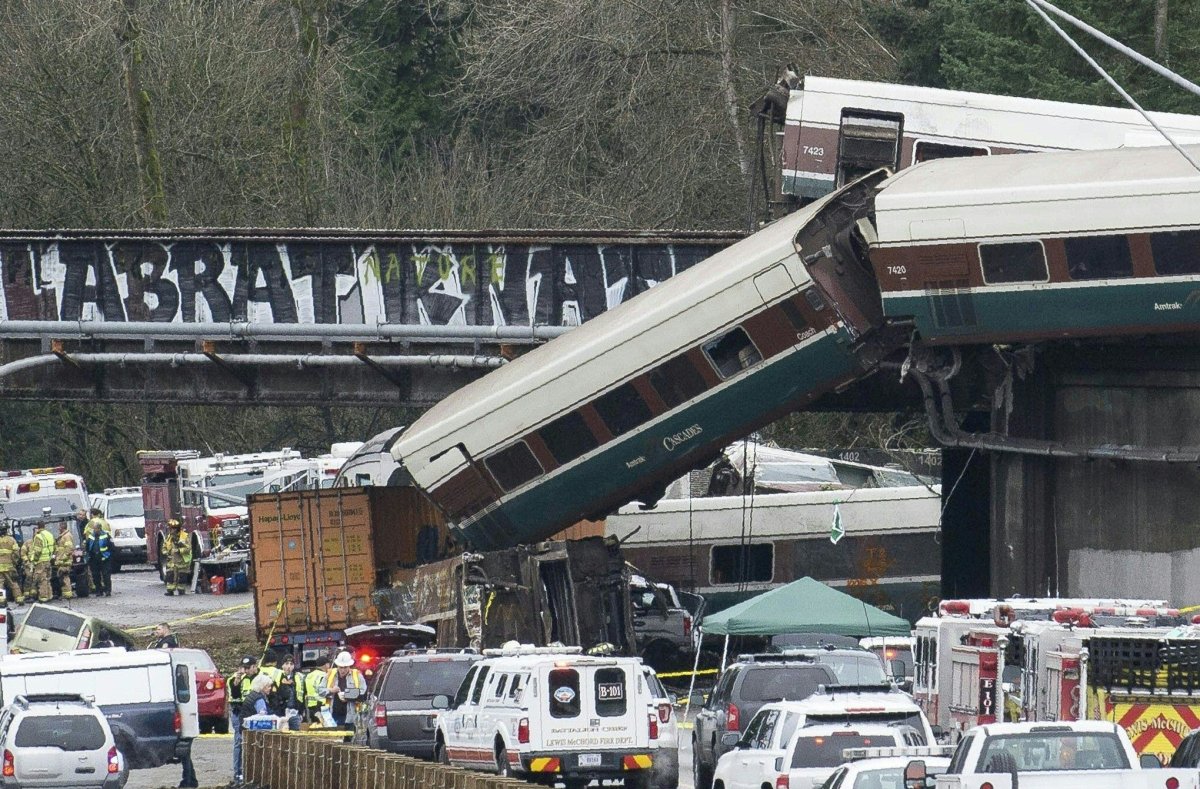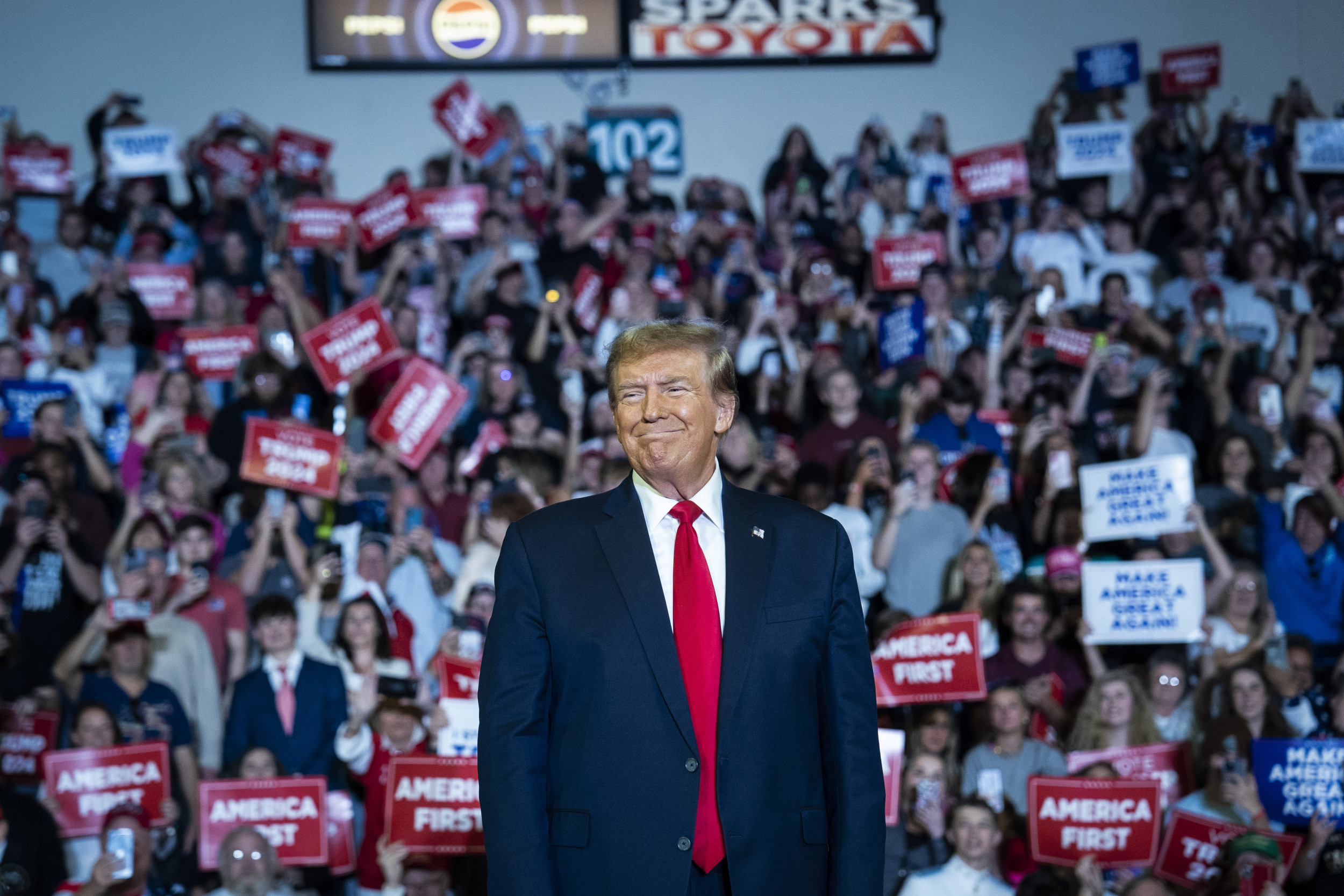This article first appeared on the the Cato Institute site.
Today is not a proud day for the Washington State Department of Transportation (WSDOT).
The agency spent close to $800 million of federal funds on a so-called high-speed rail project between Seattle and Portland –only "so-called" because top speeds would be just 79 mph, which is conventional rail.
Much of the money was spent upgrading existing tracks to give passenger trains a shorter (but less scenic) route through and around Tacoma.
As you probably know, the very first train to use this route derailed on an overpass over Interstate 5, blocking half the freeway and killing at least six people.
To make matters worse, Mayor Don Anderson of Lakewood, Washington, about 10 miles north of the crash, warned WSDOT a few weeks ago that it was not taking safety seriously enough. " This project was never needed and endangers our citizens," he cautioned.
To be fair, Mayor Anderson was worried that grade crossings in Lakewood were inadequately protected for 79-mph trains. But his comments more generally suggest that WSDOT was putting the goal of saving Seattle-Portland passengers ten minutes of time–increasing average speeds by just 2.7 mph –ahead of safety.
In response to the accident, President Trump tweeted, "The train accident that just occurred in DuPont, WA shows more than ever why our soon to be submitted infrastructure plan must be approved quickly." The implication was that this is an example of crumbling infrastructure when in fact it is an example of misplaced infrastructure priorities.
What the accident shows is why the federal government should get out of the infrastructure business. As Mayor Anderson said, this project was unnecessary, and it was only done because President Obama wanted to spend billions of federal dollars on ideologically driven high-speed rail projects and WSDOT had a shovel-ready project (despite not being high-speed rail) on which to spend some of those dollars.
Trump's inclination is to have the federal government back out of the infrastructure-funding game. But many members of Congress in both parties see infrastructure as a store full of candy they can give out to please their constituents and campaign contributors.
The danger is that a hastily passed bill will end up spending more billions on unnecessary projects like the Seattle-Portland train.

No matter what speed, intercity passenger trains are obsolete and have been at least since the advent of jet airliner service. Even after hundreds of millions spent on improvements, this particular train would have been slower than driving from Seattle to Portland, but even the fastest high-speed trains are slower than flying.
One airline alone offers nearly two dozen flights a day between the Portland and Seattle airports. People who complain that Sea-Tac Airport is a long way from Seattle would do better to seek more flights out of King County Airport (aka Boeing Field), which is just four miles from downtown Seattle, than to support more trains.
Amtrak's Seattle-Portland fare is $26 while the cheapest flights are $65. But Amtrak is heavily subsidized by both federal and state governments.
Amtrak's Seattle-Portland trains (which also go to Vancouver, BC and Eugene, OR) earned just under $30 million in ticket revenues in 2016 but cost Amtrak more than $68 million to operate not counting depreciation and other costs that Amtrak doesn't allocate to individual trains. Meanwhile, subsidies to airlines are small and mostly go to support small-town airports.
On average and including all subsidies, airline travel costs about 16 cents per passenger mile while Amtrak costs about 60 cents per passenger mile. Higher-speed trains may attract more passengers but cost so much more that the costs per passenger mile are at least six times as much as the costs of flying.
Regardless of what you think of Amtrak, the point is that transportation spending decisions should be made by and in response to transportation users, not by politicians, and especially not by federal politicians.
The accident in Dupont, Washington was a horrible tragedy, and we don't yet know exactly what caused it. But, no matter what the cause, it never would have happened were it not for federal involvement in infrastructure spending.
Randal O'Toole is a Cato Institute Senior Fellow. He is the author of the 2001 book, The Vanishing Automobile and Other Urban Myths, The Best-Laid Plans, and American Nightmare: How Government Undermines The Dream of Homeownership.
Uncommon Knowledge
Newsweek is committed to challenging conventional wisdom and finding connections in the search for common ground.
Newsweek is committed to challenging conventional wisdom and finding connections in the search for common ground.
About the writer
To read how Newsweek uses AI as a newsroom tool, Click here.








